ICAS turns 21
Globalisation was the buzz-word in the 1990s. From the first year of its creation in 1993, the International Institute for Asian Studies (IIAS) was a promoter of the internationalisation of Asian studies. Its periodical ‘The Newsletter’ (initially called the ‘IIAS Newsletter’) quickly established itself as the communication channel in the very fragmented field of Asian studies. We took 1500 copies with us to the Association for Asian Studies (AAS) annual meeting in Washington in 1995. At the end of the meeting everybody was carrying our free tote bag plus the interdisciplinary, cross-regional message it carried. Clearly there was a new kid on the block.
The IIAS delegation learned a lot at the meeting. Amongst other things: we were practically the only non-Americans; the venue of the meeting was an anonymous chain hotel that lacked any connection to Asia; and the exhibition area was dominated by US publishers. However, the scale of the conference with 200 panels and a thousand participants was impressive, and so too were the manifold interactions and smooth organisation of the meeting. In sum, it worked well, but we missed the international aspect.
It was not difficult to convince our European colleagues to join us at the next AAS meeting in Honolulu in 1996. We participated with a strong delegation of European Asia scholars and at a meeting of the AAS board we presented a preliminary copy of the Guide to Asian Studies in Europe. It was hard for them to believe that Western Europe had at least as many Asia scholars and institutions researching Asia as the US did. Then Secretary-Treasurer, John Campbell, concluded our conversation by saying: “For the first time we know whom to call in Europe”.
Since I was tasked to deepen IIAS’ contacts with the US I paid a visit to the AAS Secretariat in Ann Arbor. I pitched the idea of an international conference in Leiden in 1998 to further internationalise Asian studies in a cross-regional and multidisciplinary way. To make a long story short: the AAS, six European Associations for Asian Studies, and the European Science Foundation Asia Committee, collaborated for the first edition of ICAS. It took place near Leiden in 1998.
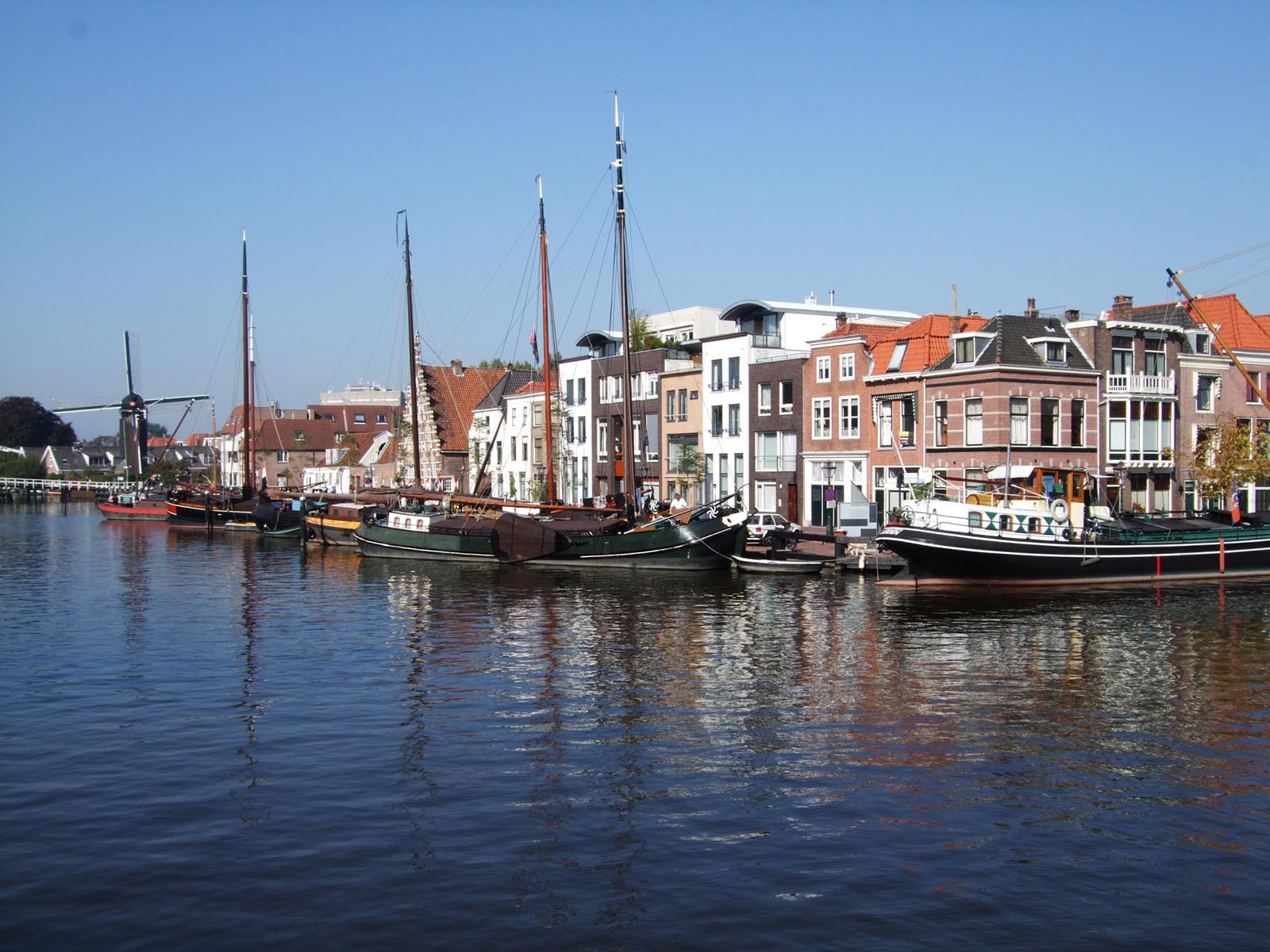
Leiden 1998
ICAS 1, Leiden, 25-28 June 1998
Nearly one thousand participants gathered during this convention. We named it a convention because we brought people together with an interest in Asia. The meeting was the first of such a size in the context of Asian studies in Europe. Twenty five percent of the sessions transcended the usual boundaries between disciplines, between nations studied, and especially between the geographic origins of the presenters. This was pointing in a new direction. The venue was a convention centre near Leiden, where a plethora of other public activities took place, such as a film festival, dance performances, a journalist forum on the Eurasian Century, music performances and an exhibition on Pakistani truck art.
We think of this convention as a platform at which Asian, American and European Asianists can study problems of interest to all - J. Campbell and W.A.L. Stokhof, co-chairs programme committee ICAS 1 Leiden
Quoting one the participants: “The greatest value of ICAS was that it did allow a greater mixing of Asian, North American and European scholars than we have experienced at any previous such gathering. This was of course one of the aims of the convention and we hope that its unqualified success will be sufficient incentive to attempt a ‘repeat performance’ in future. We are all greatly impressed with the convention – its venue, its scope, the excellence of the organisation, the diversity of activities and the range of scholars who attended”.
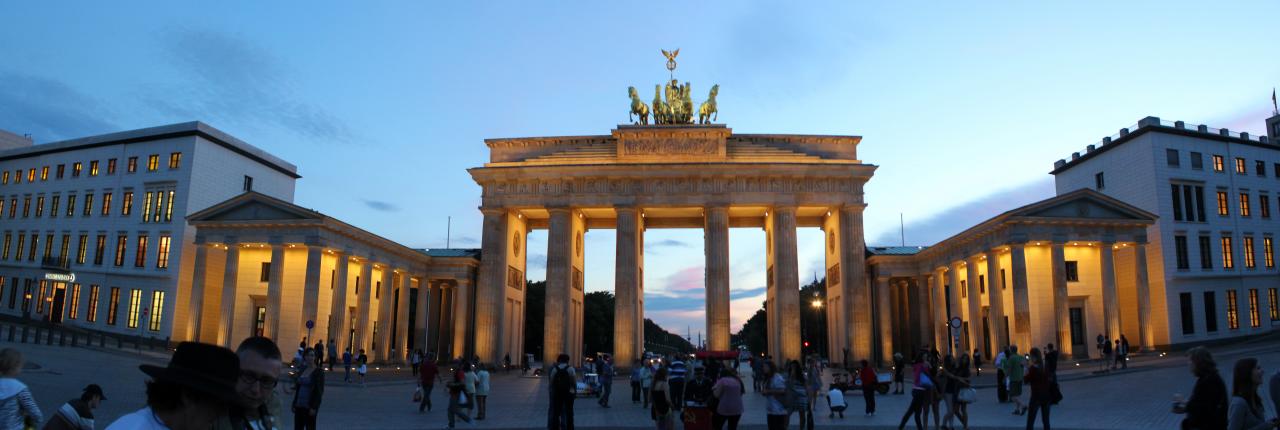
Berlin 2001
ICAS 2, Berlin, 9-12 August 2001
The second instalment of ICAS took three rather than two years to come about, which was partly due to the Millennium Bug alarming everyone at that time. No less than 14 associations in the field of Asian studies were involved in its organisation, and it took place in five buildings of the Free University in the middle of Berlin. The IIAS enabled, with its ‘The IIAS Connects You’, conference participants the possibility to check their e-mail and provided free access to the Internet, which must have been a relief for many in the post-millennium era. By this time practically all academicians were online, which certainly increased the connectivity amongst them.
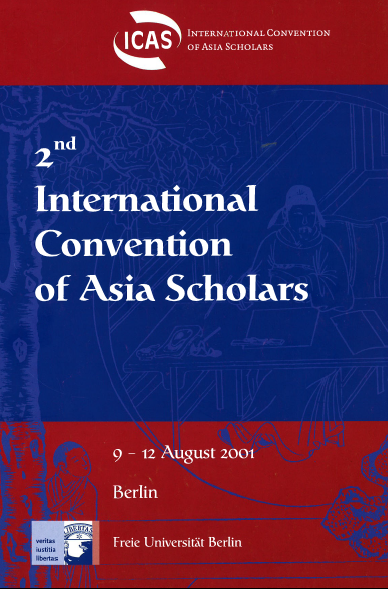
If I had to single out one of the keynote speeches of all ICAS editions it would certainly be the one given by Wang Gungwu, one of Asia’s most important public intellectuals. He is best known for his explorations of Chinese history and for his writings on the Chinese Diaspora (albeit not a term he himself likes to use). His keynote was about ‘Divergence and Dominance. Challenges to Asian Studies’. Wang characterised the development of Asian studies and mentioned the risks, but also the opportunities, of the different ways in which Asian studies is performed in present times. In 2018, in the first part of his autobiography Home is not Here (NUS University Press) he reflects on family, identity, and the ability of the individual to find a place amid historical currents that have shaped the world. He will certainly broach the topic of Asian studies in the second part of his autobiography (forthcoming) and he will doubtlessly evoke new horizons that will put the field of Asian studies in a new cyclical perspective.
This truly interdisciplinary conference opened up whole new, intriguing insights and knowledge for me - Kati Kuitto, co-organiser ICAS 2
Wang Gungwu attended a meeting of all organising parties in Berlin, where two important decisions were made that had a decisive influence on the future development of ICAS. The first was the decision to organise ICAS in Asia, every two years, in cooperation with a local host. This not only to further increase Asian participation, but also to connect to the Asian city in which it was being held. The second decision was to establish a permanent ICAS Secretariat, to be hosted by IIAS in Leiden, in order to facilitate and safeguard the concept of a cross-disciplinary and cross-regional approach to Asian studies. In short, to guarantee the continuity of the ICAS process and assist the local hosts in the organisation of ICAS.

Singapore 2003
ICAS 3, Singapore, 19-22 August 2003
The organiser of ICAS 3, Alan Chan of the National University of Singapore, reminded us of another aspect of globalisation. “The planning of the Convention took an uncertain turn when SARS (Severe Acute Respiratory Syndrome) brought international travel almost to a complete standstill”. ICAS 3 at the Raffles City Convention Centre was the first big meeting allowed to take place in Singapore once SARS had abated. Attendance was fortunately barely affected. With more than a thousand participants, gathering in more than 250 panels, ICAS 3 not only showcased the vitality of Asian studies in Asia itself, but also proved that the intuitive decision to move ICAS to Asia was completely justifiable.
ICAS 3 Singapore brought ICAS to Asia for the first time. With a significant presence of scholars from Asia, ICAS 3 hopefully helped in a small way to break down a few silos and build new bridges for Asia research - Allan Chan, organiser ICAS 3
It enabled a direct connection to the Asian environment not only in the convention centre itself, but also to explore the many attractions multicultural Singapore has to offer. Alan Chan noted: “ICAS serves an important function in promoting Asia research and in providing a forum for scholarly exchange and collaboration. We are indeed pleased that we are able to bring ICAS to Asia for the first time”. It would not be the last time, as the next three editions also all took place in Asia.
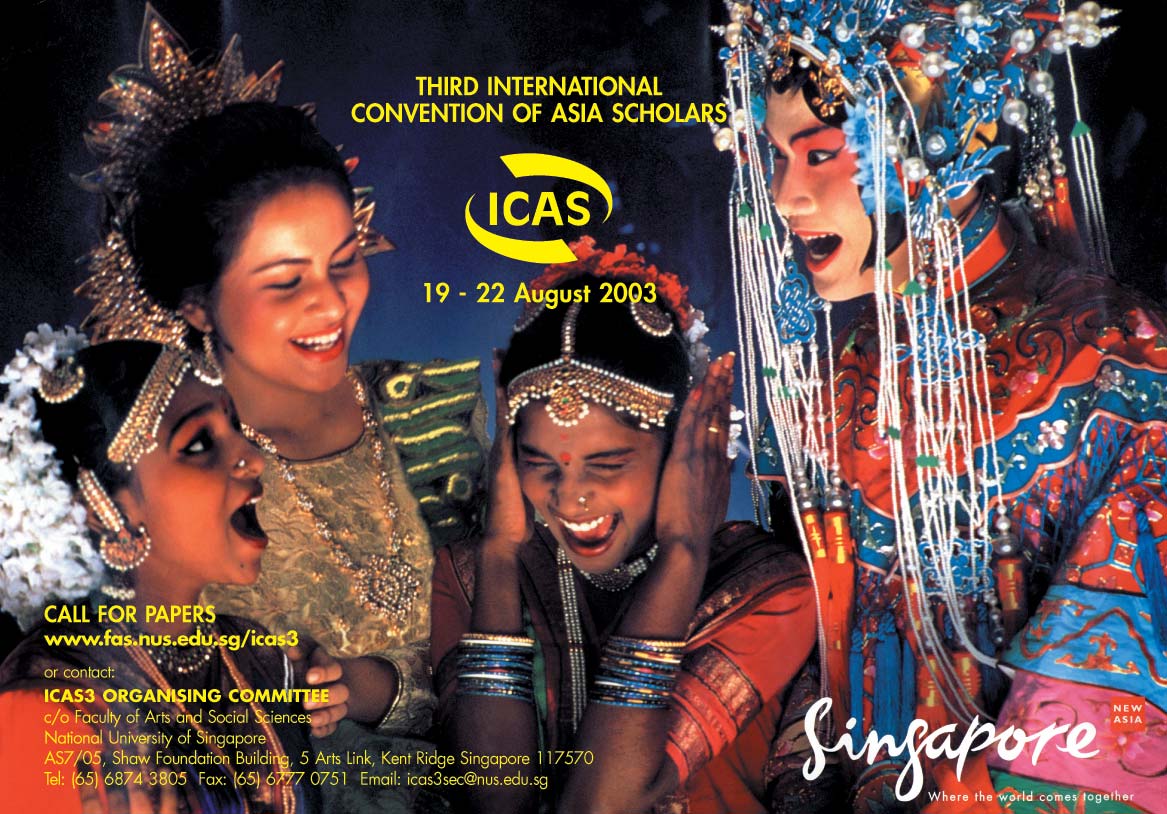
Being there offers an ideal breeding ground to refine long-standing theories and to develop new, more Asia-informed ones. In particular, the time-space compression experienced in Asian countries in their radical reforms in the past decades offer a unique opportunity to study some of the most important present-day issues. These include questions of institutional change, social transformation, market reform, ethnic conflict, environmental hazard, national security, urbanisation, migration, political control and resistance, social marginalisation, inequality, to name but a few. All these questions were clearly present in the first book of abstracts, which the participants found in their neatly designed ICAS 3 conference bag along with the programme book.
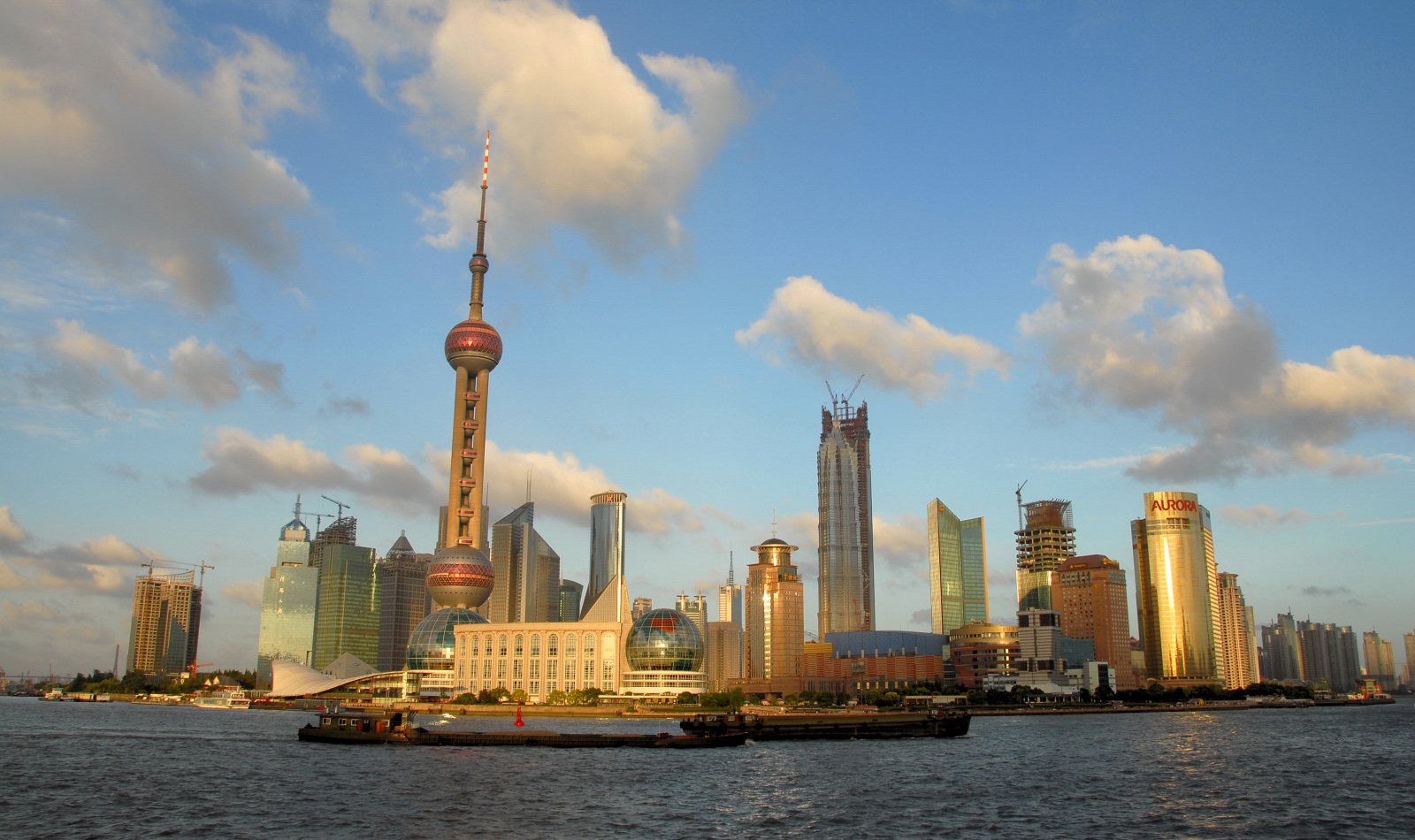
Shanghai 2005
ICAS 4, Shanghai, 20-24 August 2005
At the end of the opening ceremony in Singapore, the Shanghai Academy of Social Sciences (SASS) presented Shanghai as the venue for ICAS 4. This video presentation started a tradition, which goes on till the present day. The fact that Shanghai would be the next venue should be seen within the wider context of new developments in China at that time. The People’s Congress had decided that more should be invested in the humanities and social sciences, which had hitherto been dealt a step-motherly treatment.
ICAS is the largest gathering of scholars in the humanities and social sciences not only in China but also in Asia - Wang Ronghua, President of SASS
ICAS 4 took place in the headquarters of the Communist Party in Shanghai, in a building that resembled an enormous cake, which had been a present from Stalin to the people of Shanghai (when I revisited the city in 2013 tall skyscrapers completely dwarfed the building). We used an annex with marble floors, with more than enough rooms to accommodate 250 panels. Wang Ronghua, the President of SASS, stressed the close cooperation with the municipality of Shanghai, which translated itself in a state of the art dinner and a magnificent trip along the Huangpu river, passing the neon-lit Bund. For the first time the convention was given a general theme. SASS fittingly chose ‘The Future of Asia’. Since it was a closed meeting, ‘sensitive’ topics such as ‘AIDS without Boundaries’ and ‘Bad Girl Writing’ could also be freely discussed.
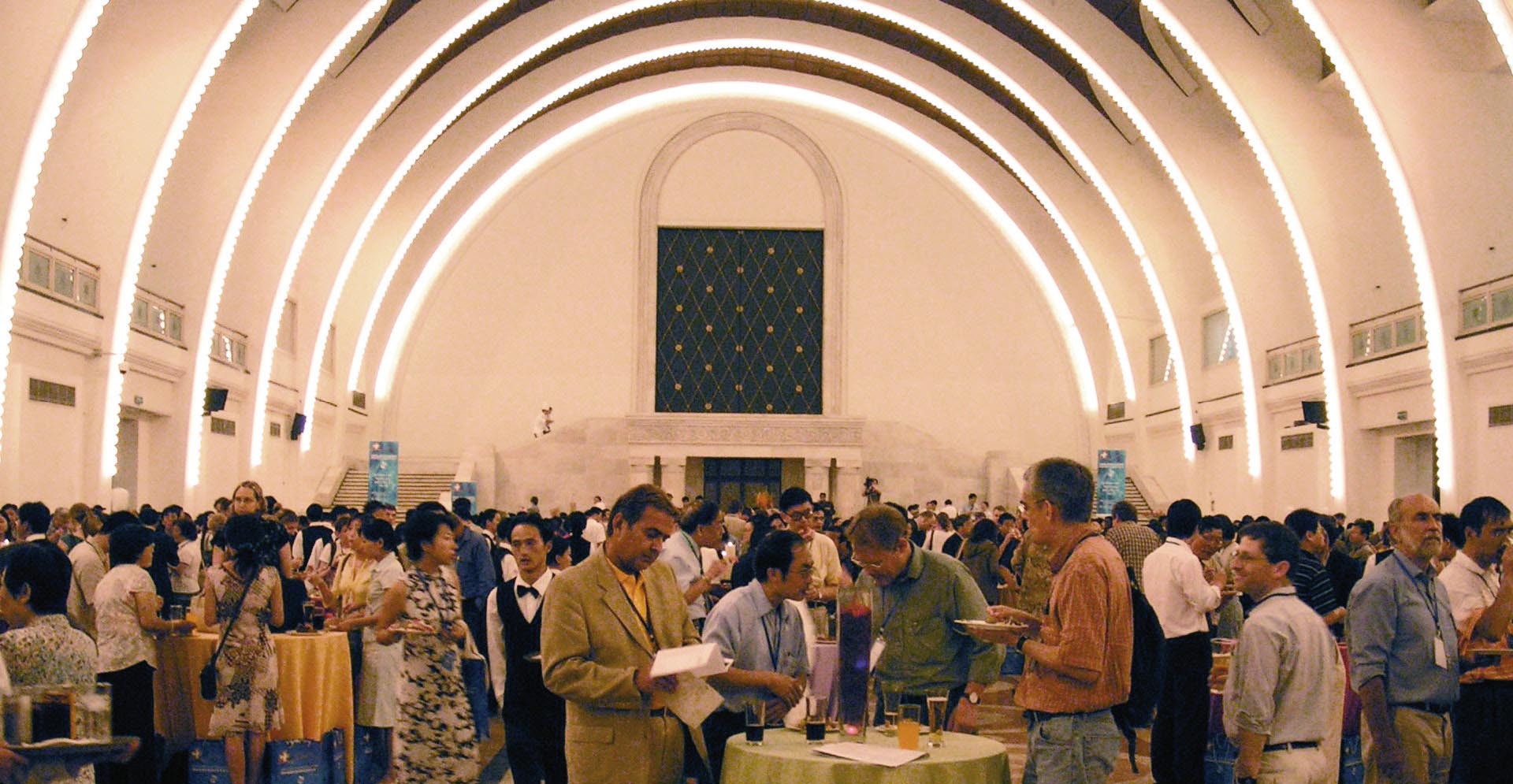
Shanghai conference venue.
During the opening ceremony the winners of the first ICAS Book Prize (IBP) were announced. This new initiative by the ICAS Secretariat was taken to create by way of a global competition both an international focus for publications on Asia (academic English-language books on Asia in the humanities and social sciences) while at the same time increasing their visibility worldwide. In contrast to other prizes in the field of Asian studies the IBP is both trans-regional and trans-disciplinary with an international reading committee. The first edition of the IBP saw 40 submissions; its eighth edition in 2019 has just witnessed more than 400!
During ICAS 4 we also published the first ICAS supplement to the IIAS Newsletter (now The Newsletter), entitled ‘Publishing in Asian Studies’. In it, publishers, editors and writers reflected on how to increase the visibility of Asian studies by developing a wide range of activities.
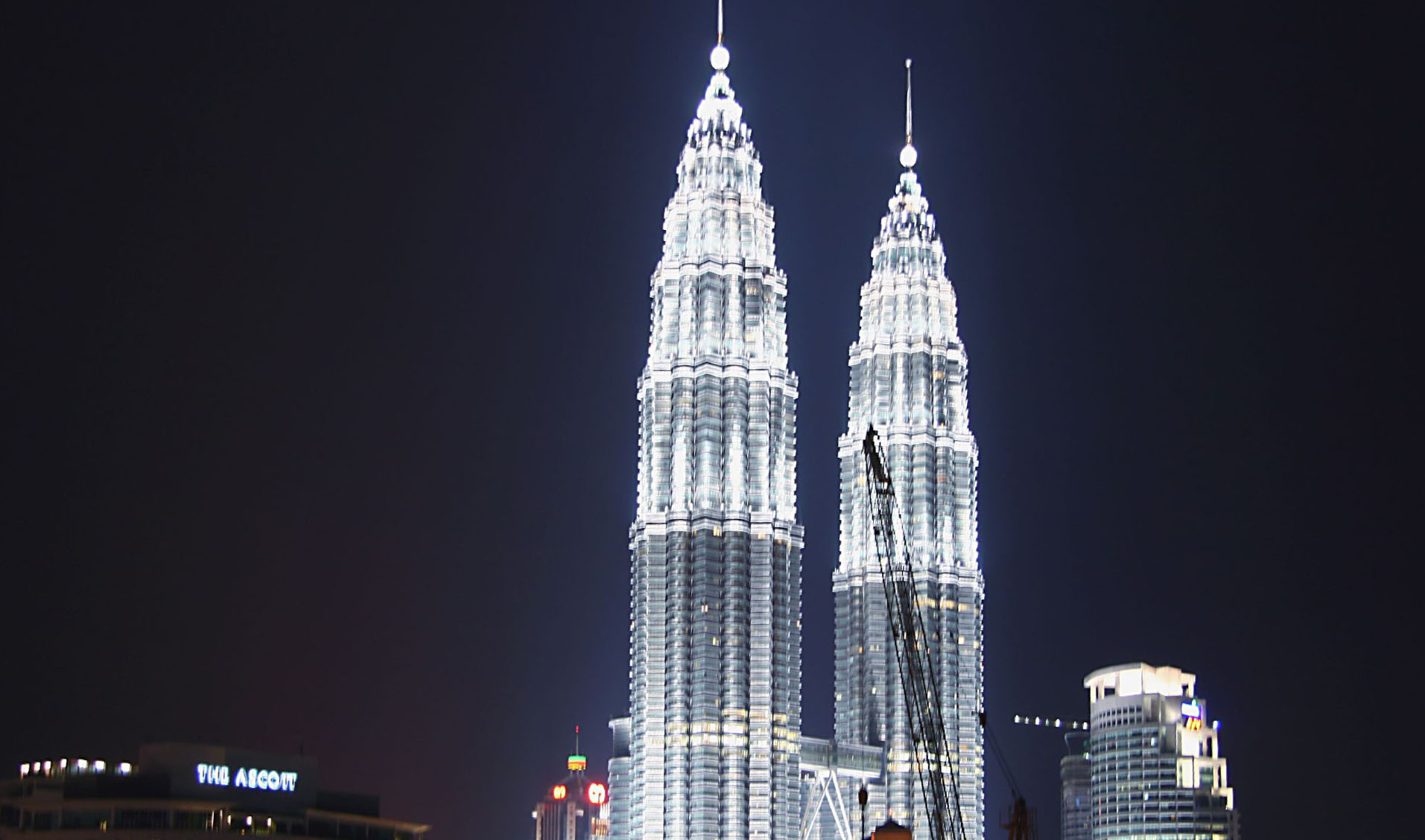
Kuala Lumpar 2007
ICAS 5, Kuala Lumpur, 2-5 August 2007
The Institute of Occidental Studies (IKON) and the Institute of The Malay World and Civilization (ATMA) of the Universiti Kebangsaan Malaysia (UKM) teamed up to organise ICAS 5, for which the theme ‘Sharing a Future in Asia’ was selected. The Minister of Higher Education of Malaysia wrote in his welcome word: “The hosting of ICAS 5 is very timely, held at a defining moment when we are embarking on a new path and transforming the country’s higher education system to make Malaysia the regional centre for educational excellence”. ICAS 5 coincided with the celebration of 50 years of independence, which furthermore connected to the Visit Malaysia Year 2007. In cooperation with the city of Kuala Lumpur a circular bus line connecting places of cultural interest was launched, and still operates till this very day.
ICAS 5 took place in the Kuala Lumpur Convention Centre (KLCC). The nearly forty exhibitors at the ICAS Book Fair had no reason to complain both in terms of visitor numbers and spectacular vantage point, as the centrally located exhibition hall had a clear view of the famous Petronas Twin Towers. The Book Fair had already been a fixed feature of ICAS since the beginning, but in Kuala Lumpur it matured.
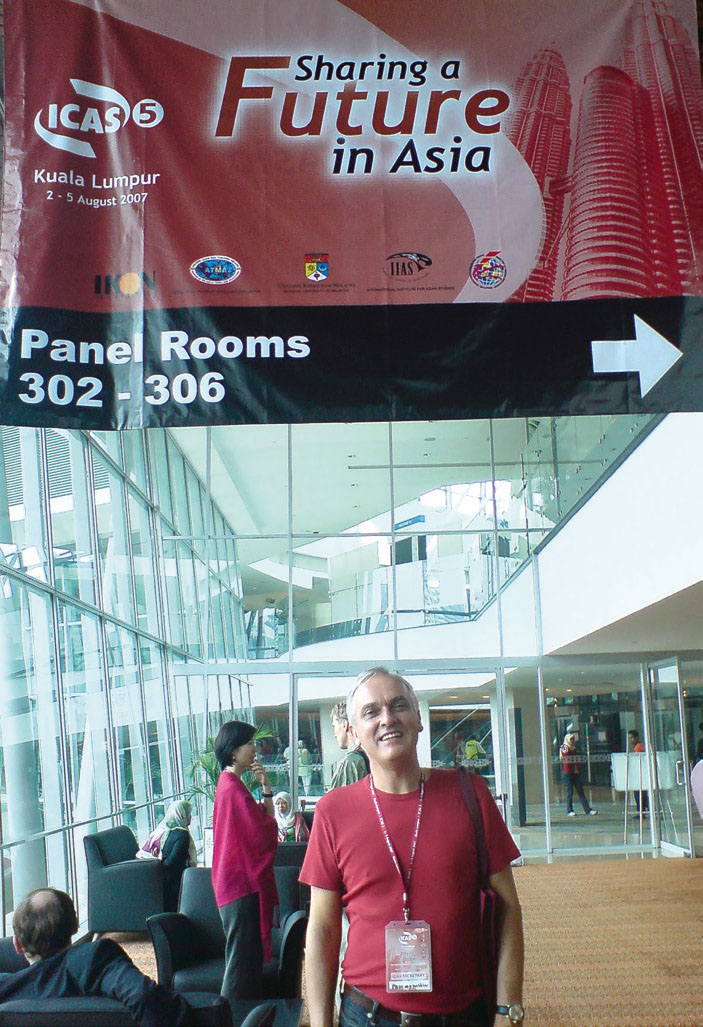
ICAS Secretary Paul van der Velde at ICAS 5 in Kuala Lumpur.
The organiser of ICAS 5, Shamsul Amri Baharuddin summed it up perfectly: “ICAS 5 is the place where researchers of all categories, from various fields, coming from all over the world, but all interested in Asia, convene, interact and build networks to share their research findings and personal experience”. This was clear impetus for the ICAS Secretariat to keep ICAS travelling through Asia, each time drawing special attention to the local dynamics of the country and region in which the convention was held.
ICAS is the Olympics of Asian studies - Shamsul Amri Baharuddin, organiser ICAS 5
In Kuala Lumpur it was the first time that the number of grouped panels (individual abstracts that are thematically grouped by the organisers, on a trans-regional and trans-disciplinary basis) was double the number of organised panels and roundtables. This combining of organised and grouped panels resulted not only in an ideal mix of top down and bottom up contributions, but it also yielded an amalgamation of many different paradigmatic approaches, which give ICAS its signature vibe.
The second ICAS supplement to the IIAS Newsletter, ‘Academic Publishing Today’ addressed the challenges and pitfalls of getting a book published. For the first time e-books were highlighted and a new IIAS initiative ‘New Books Asia’ was launched: an online platform to browse the newest Asian studies titles and read/contribute the latest book reviews (https://newbooks.asia).
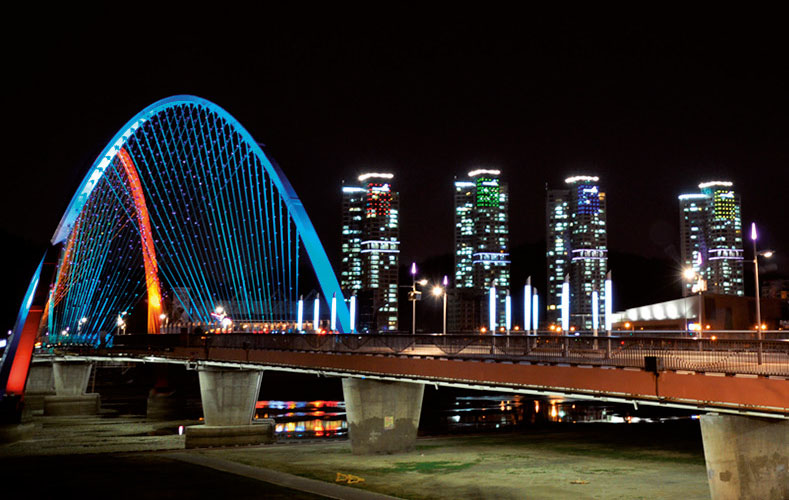
Daejeon 2009
ICAS 6, Daejeon, 6-9 August 2009
When the ICAS Secretariat visited Daejon in 2007, we first met with former Prime Minister Hung Gu Lee in Seoul. He graciously offered to be the Honorary General Chair of ICAS 6, a move that proved to be extremely instrumental in bringing ICAS 6 about. Sang Jik Rhee, local host at Chungnam National University, was the main organiser; he ingeniously put together no less than eight sub-committees to streamline the process. They decided on a general theme ‘Think Asia’, with a wink to an everyday supplement in the Korean Times entitled ‘Think English’. The ICAS Secretariat visited the Daejeon Convention Center, which was still under construction at that time. It stands on the former site of the 1993 World Exhibition, and one can still observe some highly peculiar constructions that survived, in what is now called Expo Park.
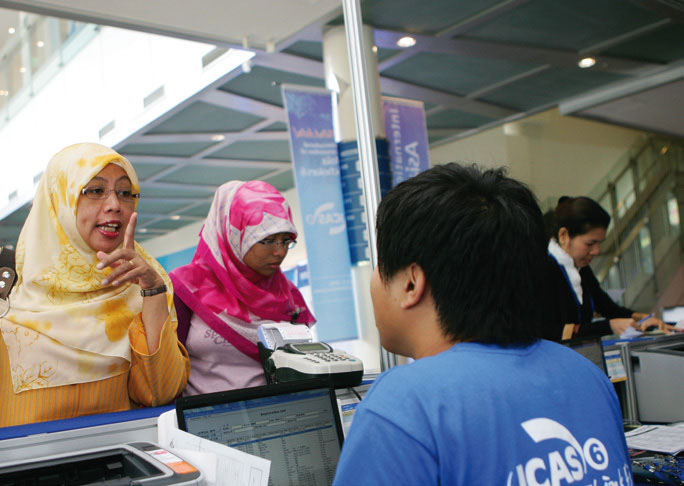
Registration at ICAS 6
Although the financial crisis erupting in 2008 had an impact on the organisation, sponsoring and attendance of ICAS 6, there were still nearly one thousand participants. They had to ‘endure’ three keynote speeches by an American, European and Korean representative. The latter was the famous and popular Korean philosopher Young-Oak Kim who was riding the waves of Asian values: “The Eurocentric historical view of the world can no longer hold itself as a model of universally valid values”. His speech was delivered in Korean and simultaneously translated into English; it lasted nearly two hours! Befittingly, yet surprising us all, he concluded his talk by singing David Bowie’s Changes.
We have so far been too neglectful of the value of Asian identity. Time has come to re-evaluate the entire inheritance of all of humanity within the context of the Asian Continent Civilisation as whole - Young-Oak Kim, keynote speaker at ICAS 6
All participants received two free copies of the brand new ICAS Publication Series. No less than eight volumes were concurrently launched during an event where more than fifty editors and authors were present. The books were based on contributions to ICAS 4 and 5. From five hundred submitted papers roughly one hundred were selected by the General Editor of the series. These were arranged along thematic lines and given a working title. A senior and junior editor were asked to supervise the process of collegial review. This meant that everybody had to read the contributions by all the other authors. It resulted in a very rigorous reviewing process, experienced by all contributors as an innovative and rewarding way to review books.
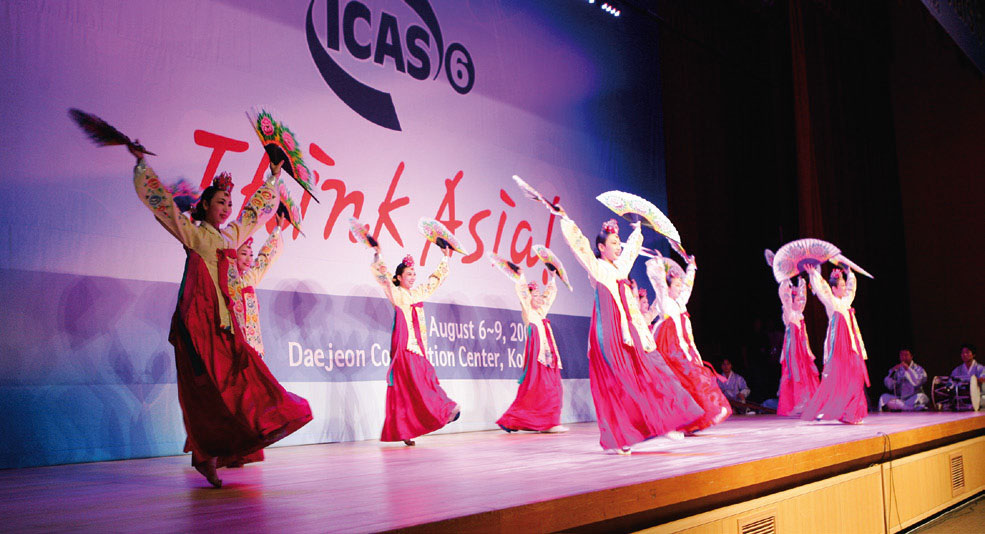
Performance and registration at ICAS 6
The ICAS 6 supplement to the IIAS Newsletter, ‘Choice in Academic Publishing’, opens with the following words by Marie Lenstrup: “All academics, by the nature of modern academe, must be both authors and readers. To the familiar invocation to ‘publish or perish’ we could add another to ‘read or rot’ or as publishers might be tempted to put it, to ‘buy or be damned’.”
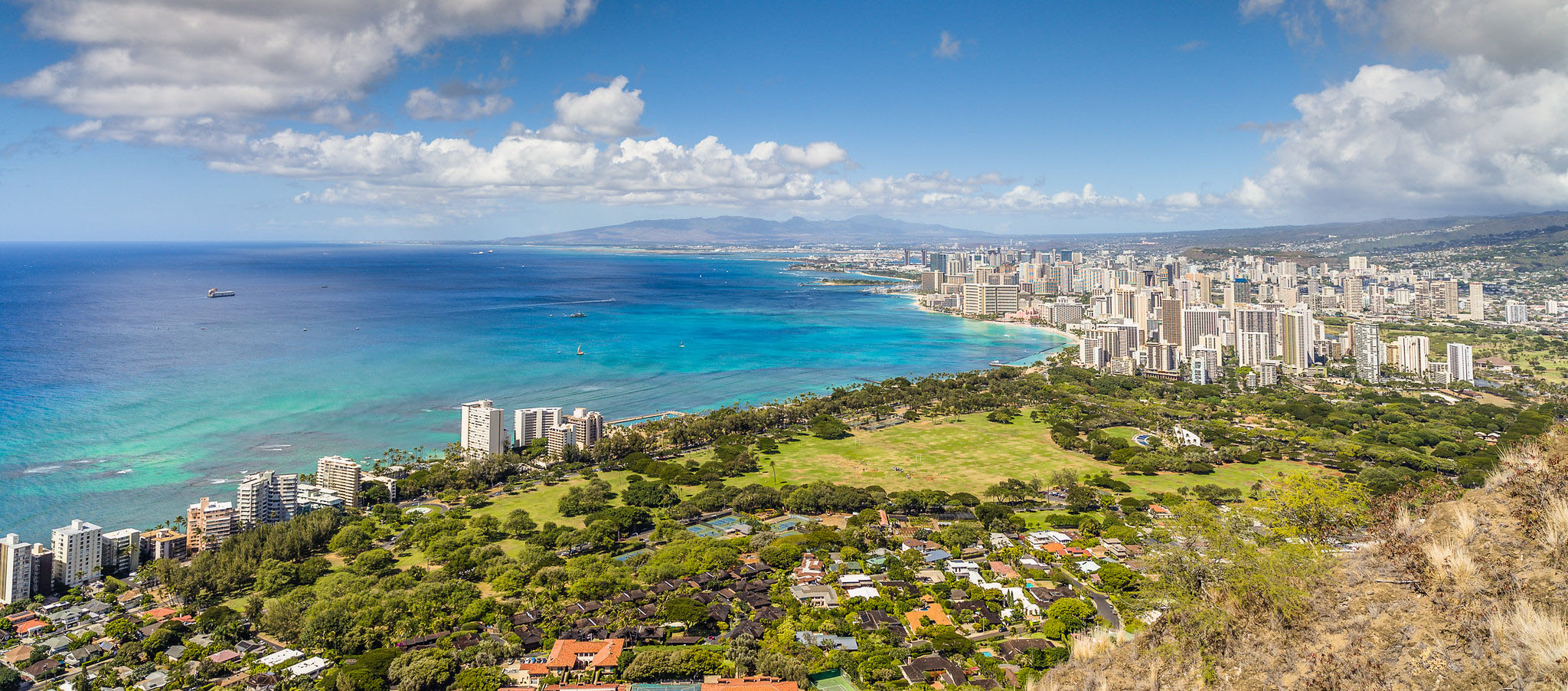
Honolulu 2011
ICAS 7, Honolulu, 31 March – 3 April 2011
During ICAS 4 (Shanghai, 2005) a delegation of AAS board members and the ICAS Secretariat had suggested the idea to organise a joint AAS-ICAS ‘meet’. It took a while before we agreed on a location, yet eventually Honolulu rose on the horizon as the obvious choice. After intensive negotiations an agreement was signed in Philadelphia in 2010. Since it was the 70th birthday of AAS the theme was ‘Celebrating 70 Years of Asian Studies’. Both the AAS and the ICAS Secretariats had to work full speed to deal with the unprecedented number of submissions. AAS took care of all panel submissions, and ICAS put together no less than 350 panels based on an inflow of 2500 individual abstracts, mostly from Asia.
An impressive 5,000 participants gathered in the Honolulu Convention Center from 31 March to 3 April 2011 making it the biggest meet in the field of Asian studies so far. The reception was sponsored by the University of Hawai’i at Mānao, the East-West Center and the Confucius Institute. It was a memorable meeting, which kicked off with the welcome reception on the Great Lawn at the Hilton Hawaiian Village and Beach Resort & Spa overlooking the Pacific. The Kenny Endo Taiko Ensemble on Japanese drums entertained the participants while a fireworks display further added lustre to the gathering. The gaiety of the reception was understandably tempered by the 11 March Tōhoku earthquake and subsequent tsunami on the east coast of Japan. A Japanese princess was present at the official opening of the joint meeting and thanked the inhabitants of Hawai´i and those present on behalf of the Japanese people for their support.
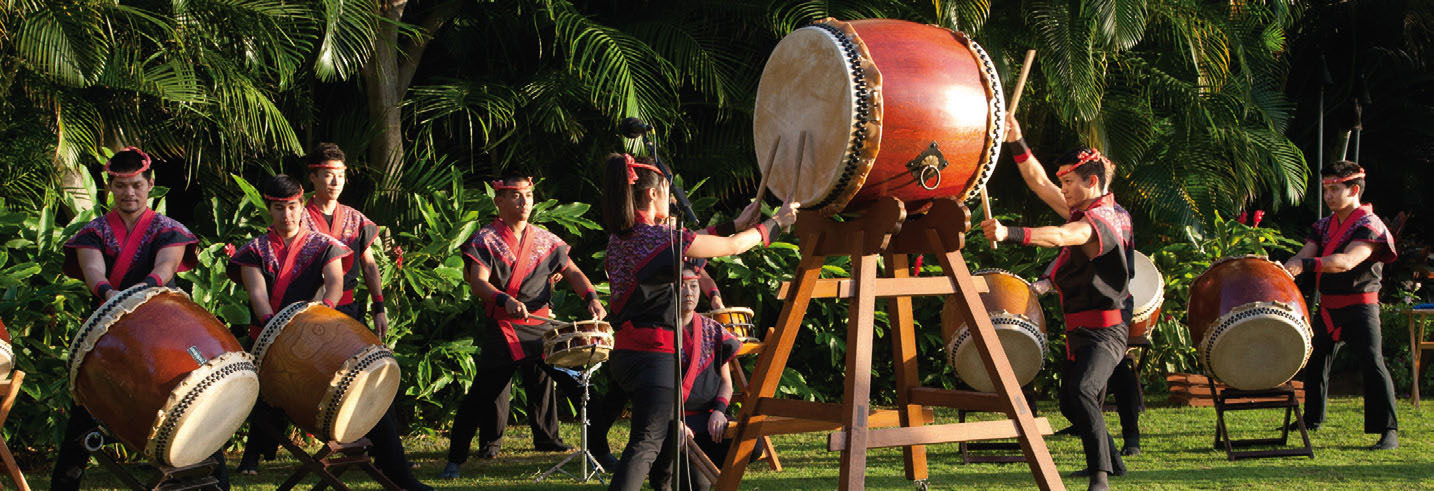
Nearly 800 panels were included in a programme book as thick as the phone book. It was more than triple the size of our regular conferences and a large number of them were in the category ‘Border Crossing and Inter-area’. A bewildering variety of topics were discussed ranging from ‘Literary Monsters and Demons’ to ‘Global Representation of China’ and ‘Women in Asia’ to ‘Media and the Message’. In the main lobby of the Convention Center there were continuous musical performances, and for the first time a professional photographer was engaged who made a colourful impression of this memorable meeting, sending out a clear signal to the outside world that Asian studies is a thriving and vibrant community.
While the structure, activities, and culture of each organization (AAS and ICAS) vary somewhat, they share the common goals of promoting the study of Asian and transcending boundaries between disciplines, nations, and geographic origins of scholars of Asia – K. (Shivi) Sivaramakrishnan, AAS President
Our joint gathering was from the outset both a risk and a challenge but it paid off in many respects, foremost in terms of attendance. More than 2,000 scholars hailing from Asia set in motion further internationalisation of Asian studies and triggered the annual AAS-in-Asia meetings, which started in 2015. The ICAS Book Prize received a massive 200 submissions, prompting the reading committee to put in place Accolades, so as to recognise a larger subset of titles, including ‘Publishers Accolade for Outstanding Production Value’, the ‘Edited Volume Accolade’ and ‘Teaching Tool Accolade’.
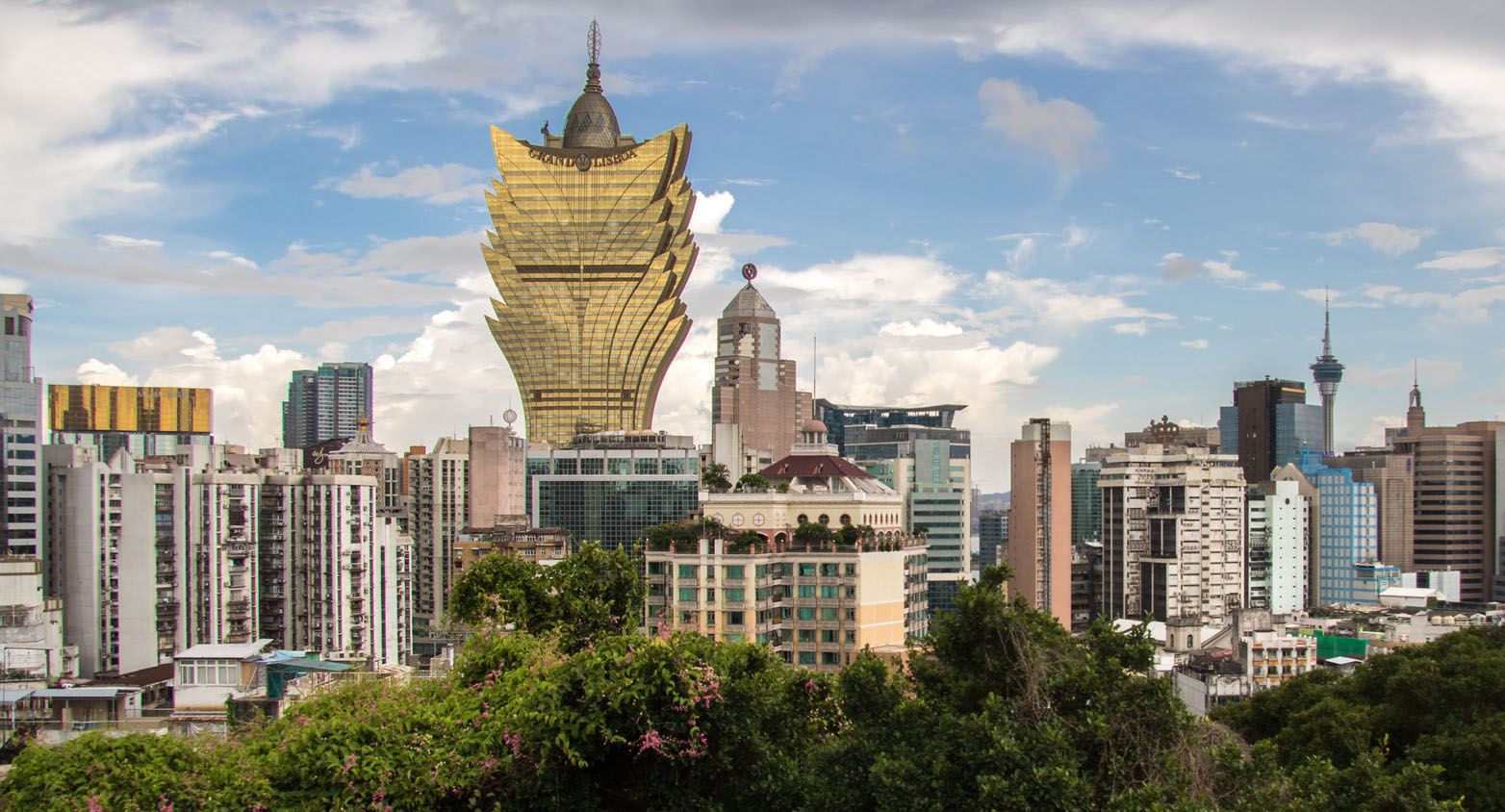
Macao 2013
ICAS 8, Macao, 24-27 June 2013
The rich cultural heritage and the strong historical legacies connecting East and West made Macao an ideal place to host ICAS 8. Who would have ever dreamed that ICAS would take place at The Venetian Macao, the fourth biggest structure in the world, primarily a casino, shopping mall and hotel.
ICAS 8 was organised by the University of Macau and the Macau Foundation. The 1200 participants representing 600 institutes of higher learning gathered in more than 350 panels. Within these panels, new ideas and research findings were discussed, not only among researchers who study Asia, but also among scholars who live in Asia. Holding the convention in Macao reminded us yet again of the importance of holding ICAS in Asia. The conceptual lexicons and theoretical tools used in social sciences and humanities have derived almost exclusively from the West. Although these theories and methods have been applied throughout the world with considerable success, their limitations are increasingly apparent, especially in Asia, with its long traditions of organising social relations, its own norms about power and order, and its legacies of implementing rule. With Asian countries emerging to become prominent players, there comes a point when we recognise that the region has something to offer in the development of (social) knowledge. ICAS offers a platform to facilitate this process.
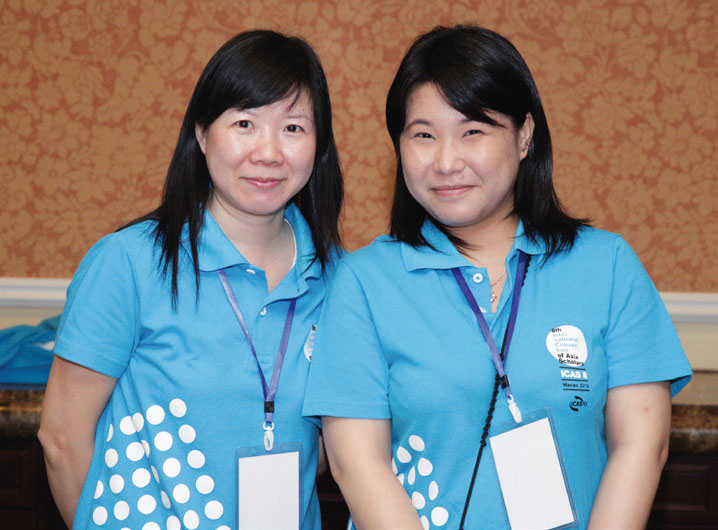
Volunteers at ICAS 8.
The city of Macao played a central role in discussions on urbanism and heritage. The panels and roundtables on these subjects were attended not only by academicians, but also by government officials, museum curators, NGO activists, journalists, business leaders, and members of the general public. It was a rare opportunity during which scholars and practitioners across different continents and regions gathered together to explore local and global problems.
The hosting of ICAS 8 is testimony to our commitment of achieving excellence in higher learning - Wei Zhao, Rector University of Macau
ICAS 8 had several firsts. It witnessed the first meeting of the ICAS International Council, now a well-established advisory body composed of academicians, representatives from civil society and previous ICAS organisers from Asia, Africa, Australia, Europe, Latin America and North America. From its inception ICAS benefitted from their inputs and it has certainly widened the global reach of ICAS. During its first meeting Lloyd Amoah, Secretary of the newly founded Association of Asian Studies in Africa, presented the plan for what would in turn become the conference ‘Africa-Asia: A New Axis of Knowledge’, which took place in Accra (Ghana) in September 2015 with the support of the ICAS Secretariat and the University of Ghana. The second edition of the ‘Africa-Asia conference’ took place in September 2018 in Dar es Salaam with the University of Dar es Salaam acting as a host (find a small selection of presentations from this 2018 conference presented in this current Newsletter issue). Nearly 400 researchers, craftsmen and artists gathered in nearly 100 panels. Its next edition will be announced in the near future.
Another first was the reporting on the conference in cooperation with the Macau Daily Times. Every day Sonja Zweegers, Editor of The Newsletter, cooperated with local journalists to produce a daily supplement reporting on what was taking place, and coming up, at ICAS 8 (https://issuu.com/iias/docs/icas8-newsletter)
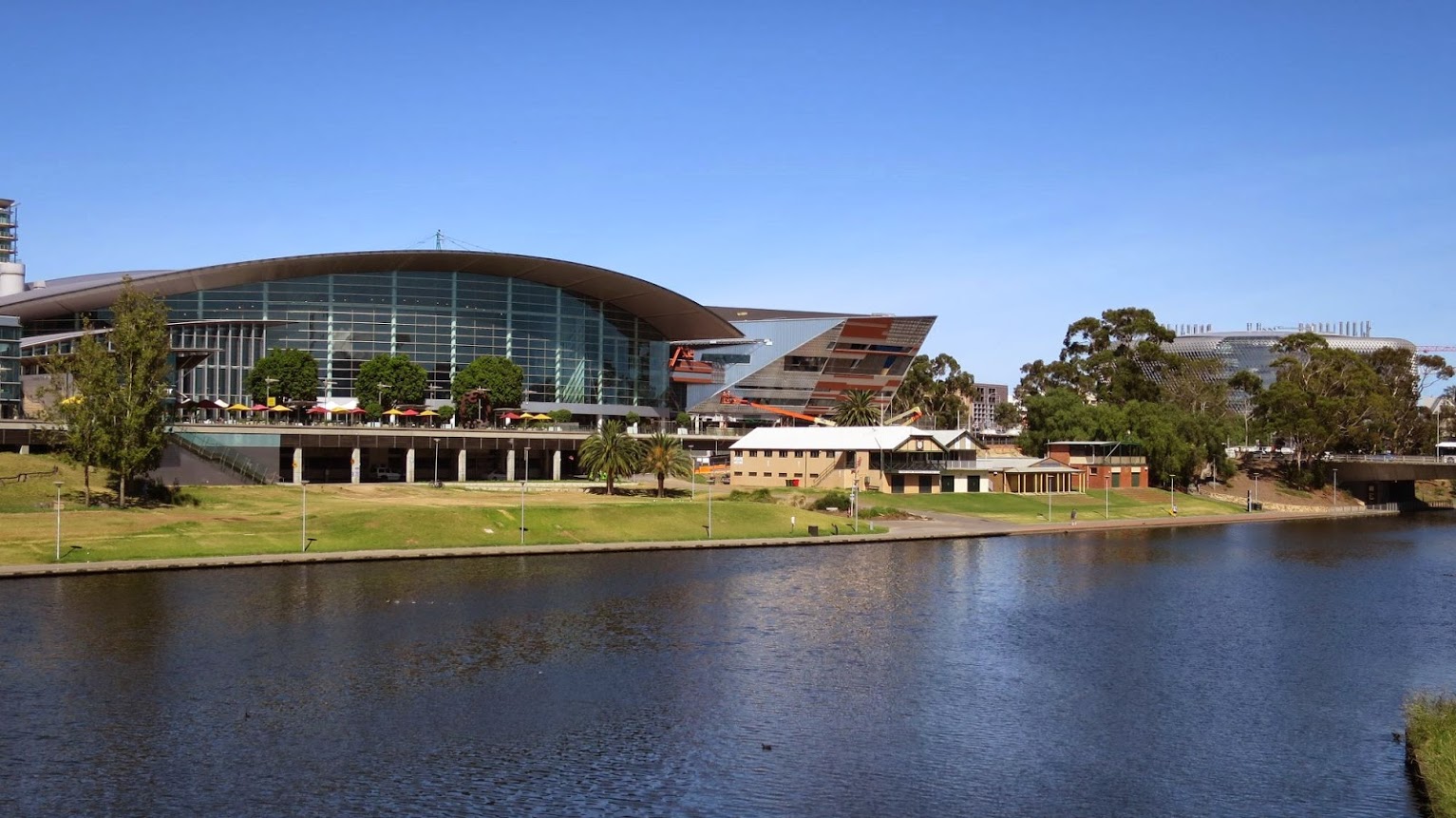
Adelaide 2015
ICAS 9, Adelaide, 5-9 July 2015
When the International Congress and Convention Association (ICCA) informed us that ICAS belonged to the top five percent of conferences world-wide in terms of numbers we decided on a franchise experiment. Four Australian cities showed an interest, but Adelaide’s bid was the most all-encompassing: three universities (the University of Adelaide, Flinders University and the University of South Australia), the city of Adelaide, the Adelaide Convention Bureau, the state of South Australia and the International Convention Management Services Company, had worked closely to bring the bid together. And so, the city on the southern coast of Australia, with a tradition of strong ties with Asia, was selected as the location for ICAS 9.
After negotiations with the Asian Studies Association of Australia (ASAA) during its meeting in Perth in 2014, several of its regional associations decided to have their biennial meetings coincide with ICAS 9. This was a way to guarantee sufficient numbers of participants in a place, not without reason, coined ‘down under’.
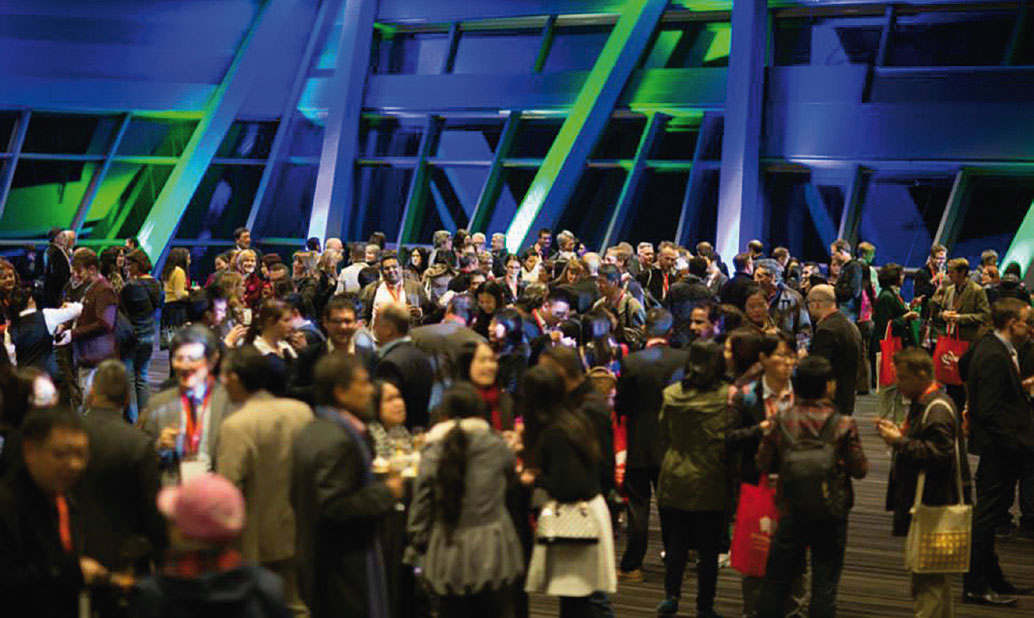
At ICAS 9 the ICAS Secretariat launched a new format: the Book and Dissertation Presentation Carousel, which gives participants the opportunity to present their research findings in a concise way for those interested in the topic. It proved to be a very fruitful format for both presenters and audience and it has become a popular fixed feature of the convention. The young doctors pitching their dissertations found it an easy way to come into contact with interested publishers. The latter in turn were quite happy to get in touch with prospective authors. This win-win situation has brought and will bring about many happy marriages between publishers and authors.
This is the first time that interculturality has been given such prominence in Australia. ICAS 9 seeks to harness international expertise on interculturality in Asia (…) This will be another way in which Asia expertise can help shape public policy in unexpected and positive ways - Gerry Groot and Purnendra Jain, organisers ICAS 9
The issue of The Newsletter published shortly after ICAS 9 asked the question: Who is the New Asia Scholar? Content was based on interviews conducted and contributions commissioned during the meeting in Adelaide. ICAS is a fitting platform to ask such a question because it has the greatest diversified cross-continental representation. One of the most obvious observations is that Asian studies is now more and more being produced in Asia. New ideas and research findings are discussed not only among researchers who study Asia, but also among Asia scholars who live in Asia. In approximately 20 articles ranging from ‘The new Asia scholar’s role in Asian/area studies’ and ‘A China scholar working in China’, to ’Navigating our culturally interconnected world’ and ‘Africa and the unmasking of Asia’, we are beginning to see the contours of this New Asia Scholar.
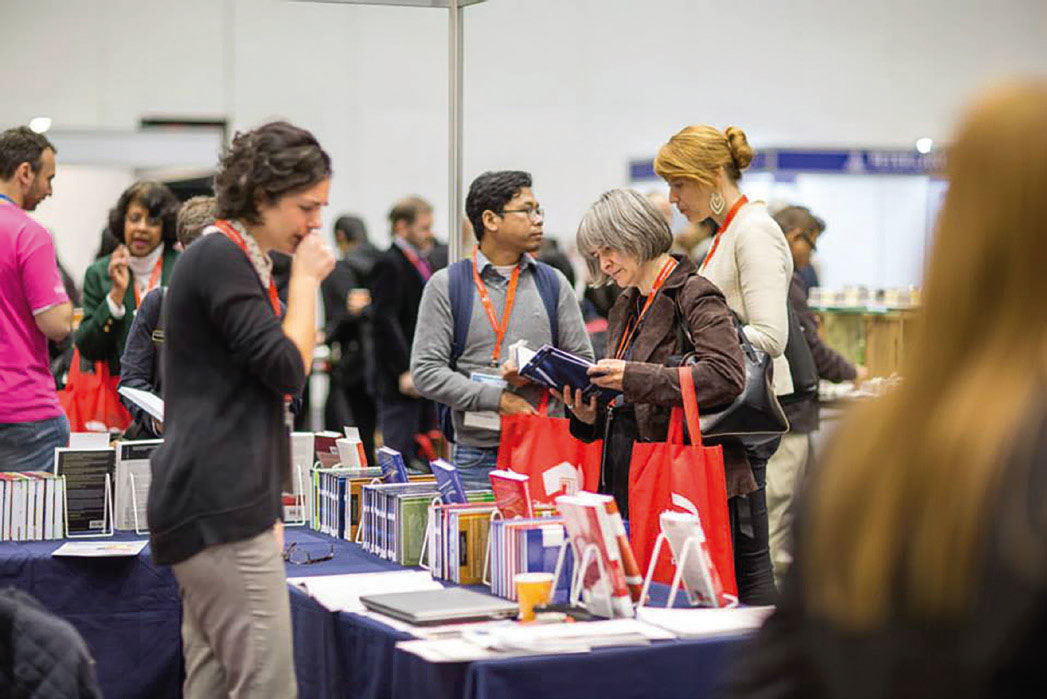
In retrospect, the meeting was an important one for Adelaide because it brought fresh knowledge and perspectives on Adelaide’s relations with Asia through the exchange with a wide range of top researchers in, to name but a few fields: urban development, social and economic transformation, migration and connectivity, history and cultural heritage. ‘Interculture Adelaide’ was one of the platforms where this was made specific. It brought together scholars, policymakers and other stakeholders to consider the idea of interculturality, broadly defined as a set of cultural skills supporting openness and adaptivity. Also from a financial point of view ICAS 9 was beneficial for Adelaide. The Adelaide Convention Bureau later estimated that ICAS 9 injected 5 million Australian Dollars into the Adelaide economy.
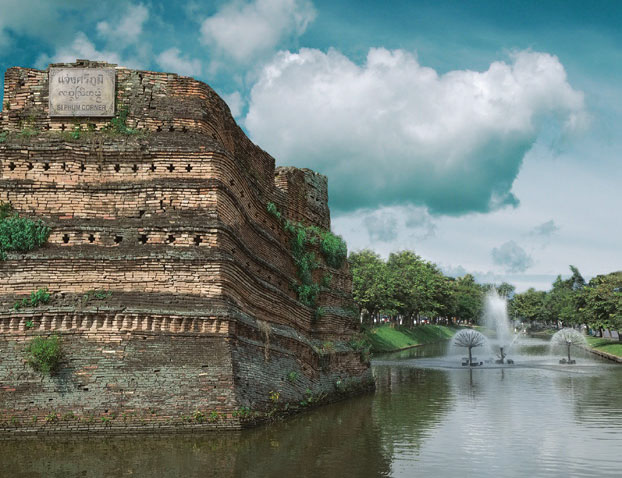
Chiang Mai 2017
ICAS 10, Chiang Mai, 20-23 July 2017
After a decade it was high time to return to Southeast Asia. The RCSD at Chiang Mai University in Thailand requested the opportunity to organise the 10th edition of ICAS in connection with 50 years of the Association of Southeast Asian Nations (ASEAN), and to hold it back to back with their Thai Studies conference. According to the organiser of both conferences, Chayan Vaddhanaphuti: “The emergence of the ASEAN community in Asia is a hope for economic, political and socio-cultural connectivity as well as a challenge for policymakers and the grassroots. ASEAN in Asia is, thus, one of the central themes of this conference”. As a result, Surit Pitsuwan, former Secretary-General of ASEAN, was invited to speak at the opening ceremony, where he made a passionate plea for democratic values and academic freedom.
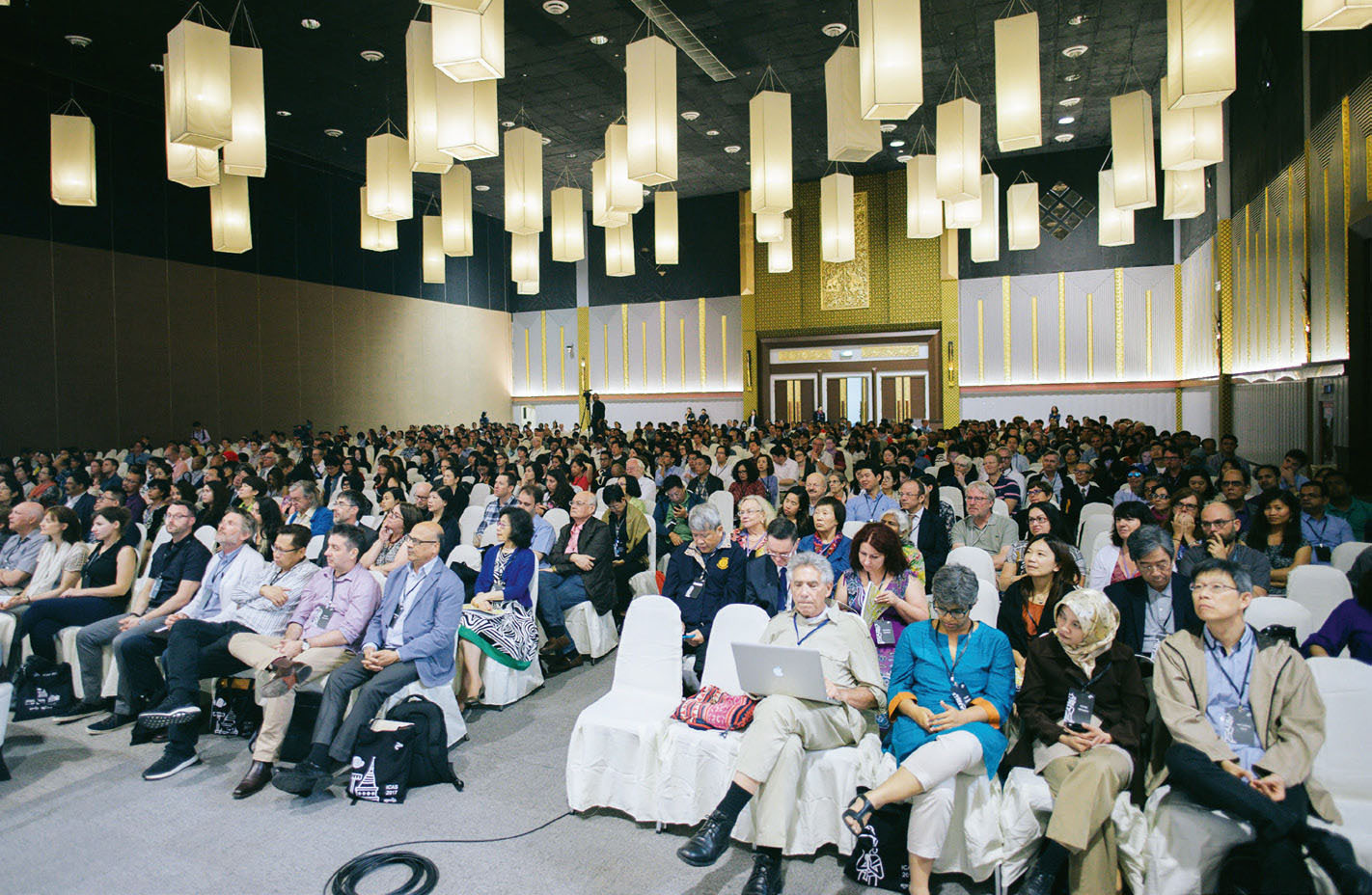
His speech closely connected with the ICAS Keynote Roundtable ‘Upholding Democratic values in Southeast Asia: Intellectual Freedom and Public Engagement’. Two Southeast Asian historians and a social rights activist from Thailand addressed the situation of democratic deficit prevailing in most Southeast Asian countries by focusing on the social and political roles they play as actors and witnesses of ASEAN’s recent history. More than three hundred participants joined in the lively discussions chaired by IIAS Director Philippe Peycam. This format proved fruitful and is also planned for future editions of ICAS because it embraces a multitude of voices and views and is apt for a meeting such as ICAS.
This multitude of voices should also be present in the ICAS Book Prize (IBP). ICAS and the IBP can be regarded as one of the ways to facilitate the confluence of localised ‘connected knowledges’ and also the decentring of the landscape of knowledge about Asia. From the start, the IBP has had a broad interdisciplinary basis - Social Sciences and Humanities - instead of the traditional geographic or disciplinary compartmentalisations. The diversification of the IBP’s language basis, in collaboration with partners and sponsors from other language areas than English, was realised at ICAS 10: the ICAS Book Prize was extended to include Chinese, German, French and Korean language editions.
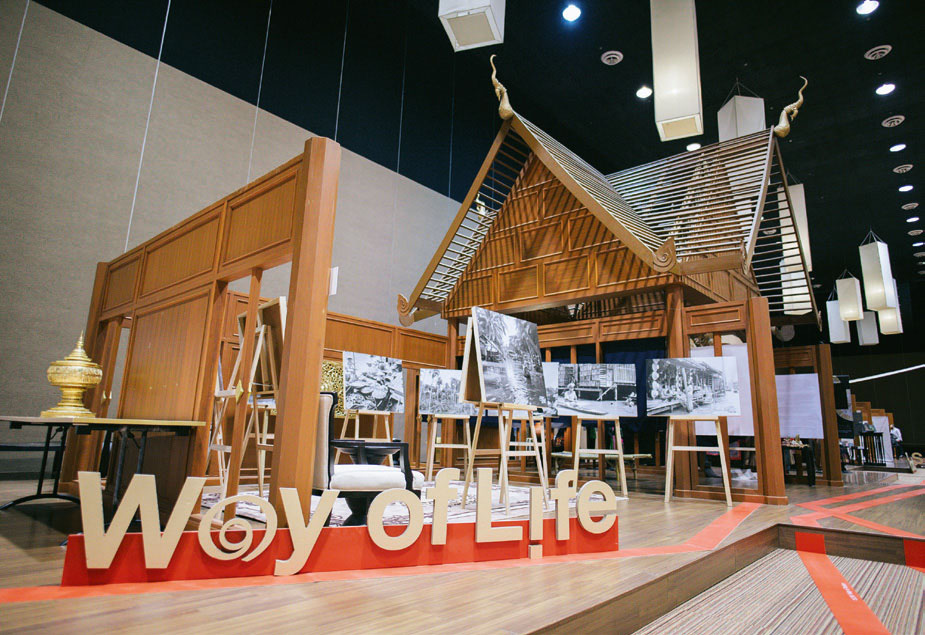
The Film Screenings organised by the Center of Southeast Asian Studies (CSEAS) of Kyoto University were a reflection of Southeast Asia’s rich ethnic and cultural landscape, and an outcome of CSEAS’ Visual Documentary Project, which aims at examining everyday life in Southeast Asia through documentary filmmaking and stimulating the dialogue with ASEAN countries. No less than thirty documentaries varying in length from 15 to 70 minutes were presented with titles ranging from Ageing in Bangkok to Burmese in Thailand and Lives Under The Red Lights to Silence of the Summer.
The emergence of the ASEAN community in Asia is a hope for economic, political and socio-cultural connectivity as well as a challenge for policymakers and the grassroots - Chayan Vaddhanaphuti, organiser ICAS 10
ICAS 11 in Chiang Mai was memorable in so many ways. The venue was massively impressive, the RatiLanna Resort catered the most beautiful and delicious Lanna-style receptions and lunches, and Akkanut Wantanasombut together with Rhinosmith Design co. created the most stunning overall design of any ICAS yet! Not to mention the twenty thematic exhibitions in traditional wooden structures, showcasing a wide variety of local projects, including, for example, ‘Salween Local Research Display: bringing the Village to the Conference’. Local researchers from villages along the Salween River, which flows through Thailand, Myanmar, and China, have been conducting research into the social and environmental issues related to the river; they displayed the outcomes of their research to start conversations with academics, professionals, activists and others from all over the world. To finish it off a real market place with a wide variety of local quality produce stood at the entrance of the convention centre. Many participants took craft items home along with fond memories of an exceptional ICAS.